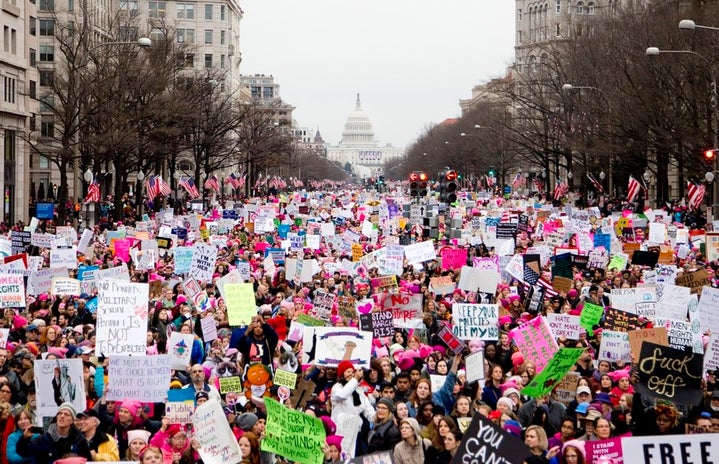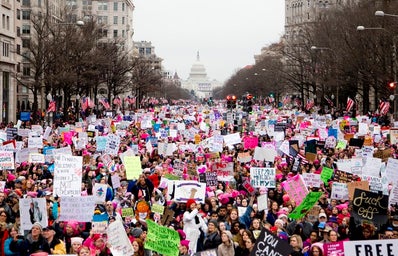Ah, the “F” word. Feminism. Do you consider yourself to be a feminist? It’s okay if you don’t, but here’s why you should. Many women and men alike in the United States (and elsewhere) do not consider themselves feminists simply because of the negative connotation the word brings to mind for the average American. However, I feel that there is a lot of misinformation about feminism that is spread in our everyday conversations that could easily override this negative attitude about feminism if we all simply changed our perspectives. I can tell you a lot about what feminism is, but instead I will tell you what feminism is not.
Feminism is not “man-hating.” This is where many people become wary of feminism. Ask a person from the general population if they are a feminist, and many will say no. Why is this? Well, many people believe that if you are a feminist, you are a bra-burning, man-hating, angry woman, which is just simply not true. Feminism is simply wanting equal rights for women. That being said, wanting equal rights for women does not outweigh or override men’s rights. It simply raises women to the same level as men so that everyone begins at the same starting line in the race of life.
Feminists don’t want women to be put above men. I’ve said it before, and I’ll say it again. Feminism is about equality. Hear that again. Feminism is about equality. Putting it simply, women want access to the same opportunities that men have always had. Men have never had to question whether or not they sound “bossy.” They just simply sound like the boss. Men have never had to question whether or not they could actually achieve their dreams. With enough hard work, they can work their way up the corporate ladder. Women, even if they work hard and make their way up the same ladder, are still faced with obstacles such as workplace harassment and discrimination.
Feminism is not for a “certain type” of woman (or man!). Feminism is for everybody. In fact, we should all be feminists! Feminism is also intersectional, meaning that it overlaps with issues of race, sexuality, class, etc. Intersectionality, simply defined, is the phenomenon of living at the crossroads of privilege and oppression. This idea of intersectionality is built upon the idea that privilege is dependent on oppression. In order for a position of privilege to be derived (whether that’s race, class, sexuality, gender, etc.), it is directly dependent on another person’s oppression. To be more specific, the privilege that white people gain in society is directly dependent on the oppression of the BIPOC community. The privilege that men experience in society is dependent on the oppression of women.
Now, having heard all that Feminism is not, I’d like to ask you a final question. Do you consider yourself a feminist? If you say yes, then great! If you still say no, I’d like to ask a follow-up question. Do you believe in equal rights for women? If you answer yes, then you are indeed a feminist, whether or not you prefer to identify yourself as on. Because, simply put, the basic definition of what feminists want is equality between men and women.



